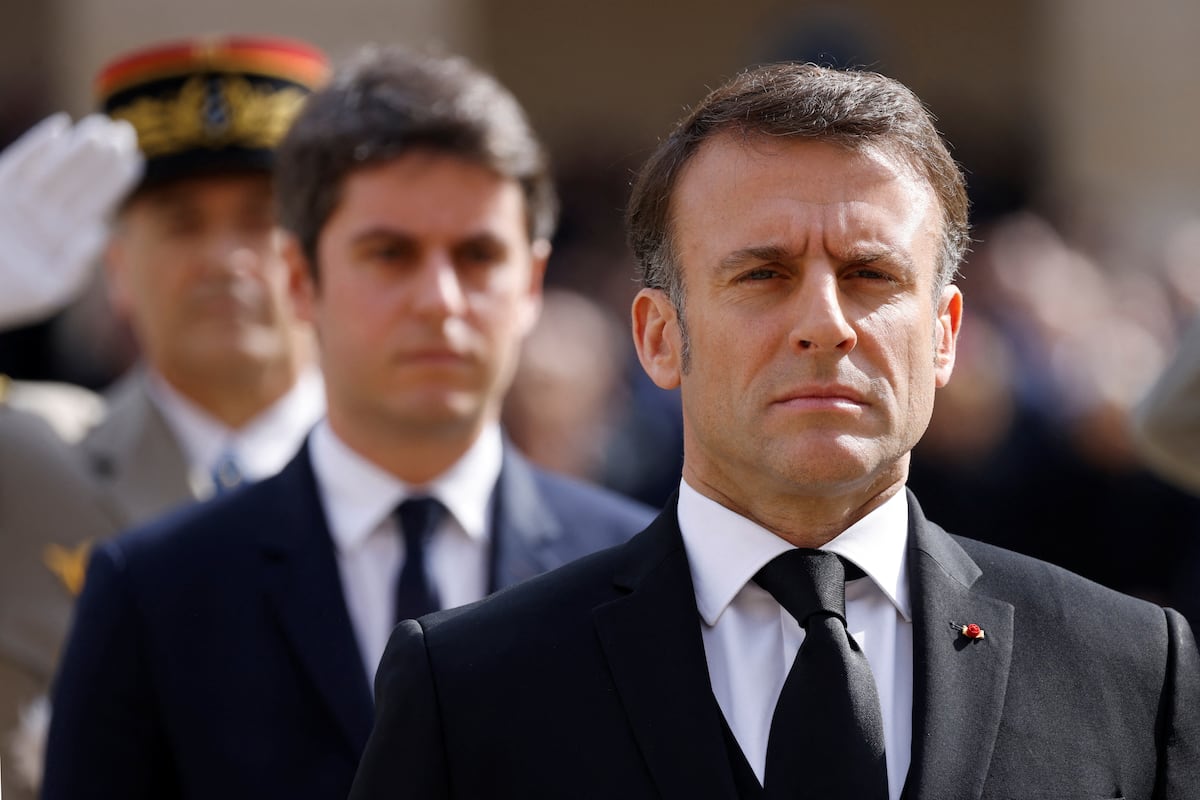French presidents always look in the mirror of Charles de Gaulle, the founder and first president of the Fifth Republic, monarchical in its forms and in the powers it grants to the head of state.
The general's example applies to everything.
De Gaulle, also the president with whom France became a nuclear power, served a few years ago to justify the negotiations with Russia.
Now it is useful to understand the new position of Emmanuel Macron, at the head of the group of countries in favor of greater Western involvement with Ukraine for a few weeks.
When during his first term he approached Vladimir Putin's Russia, Macron justified: “Russia is European, very deeply.
“I believe in this Europe that goes from Lisbon to Vladivostok.”
The “from Lisbon to Vladivostok” thing was an imitation of the Europe “from the Atlantic to the Urals” advocated by De Gaulle.
But this February he stated, in reference to sending troops to Ukraine to stop the Russian advance and deter its offensive: “Nothing should be excluded.”
And then other words from De Gaulle resonated during the Cold War, referring to what he called “Soviet Russia”: “Every retreat has the effect of overexciting the aggressor and leading him to redouble his aggression and facilitates and accelerates his assault.”
Macron was a Gaullist then and he is now.
The man who less than two years ago asked “not to humiliate Russia” and for months persisted in his telephone conversations with Putin, has just declared to the newspaper
Le Parisien
: “Maybe at a given moment, and it is not something that I want nor will I take initiative, there will have to be operations on the ground, whatever they may be, to counter the Russian forces.
The strength of France is that we can do it.”
From dove to hawk, the mutation of the French president has modified the debate of a Europe that fears the end of the American umbrella if Donald Trump wins the United States elections in November.
And it opens another debate.
Are France—and Europe—prepared to have soldiers on Ukrainian territory and risk entering into combat?
Until recently, it was a red line.
One of the criticisms of Macron after raising the volume against Moscow this winter has been, precisely, the distance between the words and the material aid that actually arrives in Ukraine.
Is it believable when he says that “there are no limits” to help?
Jean-Dominique Merchet, a veteran journalist specializing in defense at the newspaper
L'Opinion
, maintains that, if tomorrow the French army had to deploy in a high-intensity operation similar to that in Ukraine, “it would only be able to maintain a front of 80 kilometers.” , no more".
“The Ukrainian front extends for nearly 1,000 kilometers,” he writes in the essay
Sommes-nous prêts pour la guerre?
L'illusion de la puissance française
(Are we prepared for war? The illusion of French power).
Russophilia among the French elites
Another question is whether France would be willing.
The author, in a videoconference conversation, explains that, “globally, the social body of army officers is not very favorable to Ukraine or NATO.”
“It is still,” he points out, “a Catholic and conservative environment.”
This does not mean that you will not professionally and obediently carry out orders if they must be deployed.
But it reflects, on the one hand, a Russophilia that has spread for decades among the French elites, and adds to the majority skepticism in the population regarding the possibility of sending troops.
When asked if France is prepared for war, Merchet answers: “No.”
But he specifies: “What is not prepared is the industry: we do not have production capacity.”
He explains that it takes three years to build a Rafale aircraft, and between 35 and 40 months to produce an Aster-15 or Aster-30 missile.
“We do not have stocks or production capacities and this is the problem, not so much if we have 30 or 40 infantry regiments.”
“We must not forget something extraordinarily unpleasant, and that is that no European country, taken individually, would have been capable of carrying out a war of such important dimensions as the one that Ukraine has had to carry out,” he commented in February, before the Macron's statement on sending troops, François Heisbourg, advisor to the Foundation for Strategic Research analysis center.
“France's howitzer production today is 3,000 per month,” he added, “a day and a half of howitzer consumption in Ukraine.”
According to Merchet, what, if anything, gives credibility to Macron's message to Putin, is the atomic bomb.
France, although it is no longer what it once was on the international scene, knows how to speak the language of the powers.
“The Russians take it seriously, because behind a French soldier in Ukraine, if he were there, at the end of the chain there is a French nuclear submarine at the bottom of the Atlantic,” he says.
“What distinguishes France from the rest of Europe is, first, the nuclear weapon, and second, the president's ability to decide alone and quickly on the use of weapons.”
Again, the president-monarch.
De Gaulle said it: “The Western powers have no better way to serve peace in the world than to remain upright and firm.”
According to
Le Monde
, in an informal conversation a few weeks ago at the Elysée, in confidence and with a whiskey in his hand, Macron put it another way: “Anyway, next year I will have to send some guys to Odessa.”
Follow all the international information on
and
X
, or in
our weekly newsletter
.
Subscribe to continue reading
Read without limits
Keep reading
I am already a subscriber
_

